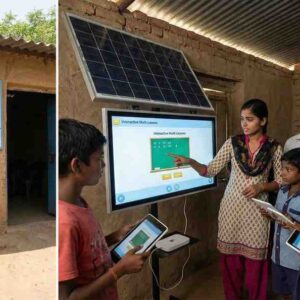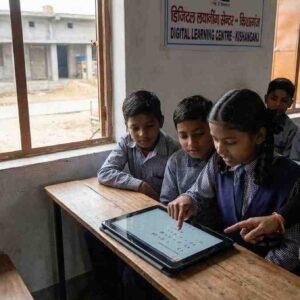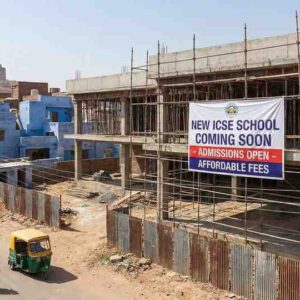In the vast and varied landscape of Indian education, discerning the quality of schooling can be challenging. As India continues to evolve in its educational methodologies and practices, certain key indicators serve as benchmarks for assessing the true quality of education provided by schools across the country. Here’s a detailed look at these essential indicators that help parents, educators, and policymakers determine the effectiveness of educational institutions.
Academic Excellence
Standardized Test Scores and Beyond: High performance in national standardized tests like CBSE, ICSE, and state boards is a traditional marker of academic quality. However, excellence also extends to how well students perform in competitive exams like JEE, NEET, and others, reflecting the school’s ability to prepare students for higher education and professional success.
Curriculum Rigor and Relevance: Schools that continuously update and adapt their curriculum to meet global standards and local needs demonstrate a commitment to providing relevant and rigorous education. Integration of critical thinking, problem-solving, and innovative thinking skills into the curriculum are signs of a quality educational program.
Teacher Quality
Qualifications and Training: The best schools boast highly qualified teachers who possess not only the requisite educational qualifications but also continuous professional development. This is crucial in a country like India, where teacher training varies widely.
Teacher-Student Ratio: Lower ratios allow for more personalized attention, crucial for student development. Quality schools maintain an optimal ratio, adhering to guidelines that promote effective teaching and learning interactions.
Holistic Development
Extracurricular Activities and Sports: Top schools offer a wide range of activities beyond academics, including sports, arts, music, and clubs. These activities are integral for developing students’ soft skills and emotional intelligence, aspects deeply valued in today’s global environment.
Mental Health Support: With growing awareness of mental health, premier schools in India are increasingly providing counseling services and support programs, helping students cope with academic and social pressures.
Innovation and Technology Integration
Use of Modern Technology: As digital literacy becomes crucial, quality schools integrate technology seamlessly into their teaching and learning processes. This includes smart classrooms, STEM labs, and the use of educational software and platforms that enhance learning experiences.
Innovative Teaching Methods: Progressive educational practices such as flipped classrooms, project-based learning, and experiential learning initiatives are indicators of a school’s commitment to adopting modern educational innovations.
Infrastructure and Safety
Well-maintained and Safe Facilities: Quality education is supported by safe and conducive learning environments. This includes well-equipped classrooms, laboratories, libraries, and sports facilities that meet safety standards set by Indian educational authorities.
Accessibility and Inclusivity: Leading schools ensure that facilities are accessible to all students, including those with disabilities, promoting inclusivity and compliance with norms like the Rights of Persons with Disabilities Act.
Community Engagement and Parental Involvement
Strong Community Ties: Schools that actively engage with their local communities and have robust partnerships with external organizations often provide more enriched learning experiences.
Parental Involvement: Schools encouraging regular parent-teacher interactions and involving parents in school activities are more likely to foster a supportive educational ecosystem.
Governance and Transparency
Transparent Administration: Transparency in fee structure, admissions, and administrative decisions are signs of a school’s integrity and accountability. This is especially pertinent in India, where regulatory oversight varies significantly across regions.
Conclusion: A Multifaceted Approach to Assessing Quality
In sum, quality education in Indian schools is multi-dimensional, transcending traditional academic metrics to include aspects that cater to developing well-rounded individuals prepared for the challenges of the future. As India continues to make strides in education, these indicators serve as essential tools for assessing and ensuring educational quality across its diverse and expansive educational landscape.










